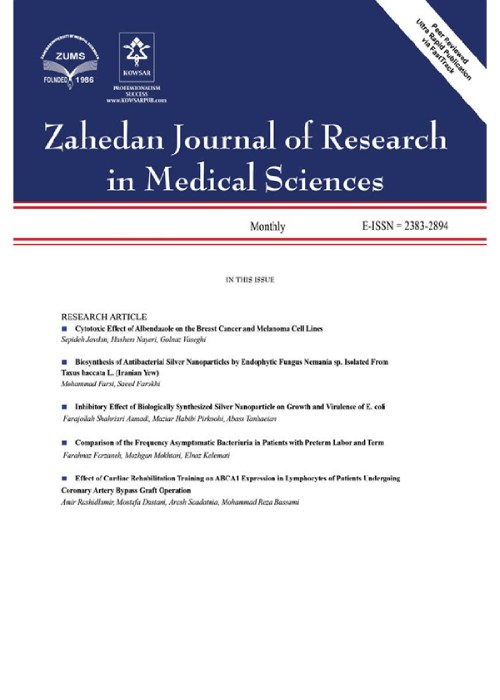The Antibacterial Activity of SnO2 Nanoparticles against Escherichia coli and Staphylococcus aureus
Author(s):
Abstract:
Background
An increasing amount of populations all over the world are reported to have no access to clean and fresh water. Some traditional chemical disinfectants (free chlorine, chloramines, and ozone) are already widely used in the water industry; alarmingly, many of these are carcinogens. Furthermore, the resistance of microorganisms to these common chemical disinfectants is increasing; superior alternatives are therefore necessary. The development of nanoscience and nanotechnology within the last decades provides opportunities to deal with this problem. Objectives
In this study, the solvothermal method was employed to synthesize SnO2 nanoparticles with spherical morphology in the absence of templates or structure-directing agents under mild conditions. The nanoparticles used to in the inactivation efficiencies for two microorganisms under UV irradiation and dark conditions. Materials And Methods
In this experimental study, tin dioxide (SnO2) nanoparticles have been synthesized via a simple solvothermal method in the absence of templates or structure-directing agents under mild conditions. The prepared SnO2 sample was employed for the inactivation of Gram-negative Escherichia coli (ATCC 25922) and Gram-positive Staphylococcus aureus (ATCC 29213) in MilliQ water under dark and UV illumination. The antibacterial activity of the synthesized SnO2 nanoparticles was evaluated using bacterium as per colony count method. Results
SnO2 nanoparticles were successfully synthesized via solvothermal method under mild condition. SEM image showed SnO2 nanoparticles were spherical when a mixture of water and ethanol used as solvent. The prepared SnO2 nanoparticles were employed for the inactivation of gram-negative Escherichia coli (ATCC 25922) and gram-positive S.aureus (ATCC 29213) in MilliQ water. It was found that SnO2 nanoparticles show much higher activity against E. coli than S.aureus. Conclusions
According to the result of this study, SnO2 nanoparticles are an excellent antibacterial agent for bactericidal applications.Keywords:
Language:
English
Published:
Zahedan Journal of Research in Medical Sciences, Volume:17 Issue: 9, Sep 2015
Page:
4
magiran.com/p1454787
دانلود و مطالعه متن این مقاله با یکی از روشهای زیر امکان پذیر است:
اشتراک شخصی
با عضویت و پرداخت آنلاین حق اشتراک یکساله به مبلغ 1,390,000ريال میتوانید 70 عنوان مطلب دانلود کنید!
اشتراک سازمانی
به کتابخانه دانشگاه یا محل کار خود پیشنهاد کنید تا اشتراک سازمانی این پایگاه را برای دسترسی نامحدود همه کاربران به متن مطالب تهیه نمایند!
توجه!
- حق عضویت دریافتی صرف حمایت از نشریات عضو و نگهداری، تکمیل و توسعه مگیران میشود.
- پرداخت حق اشتراک و دانلود مقالات اجازه بازنشر آن در سایر رسانههای چاپی و دیجیتال را به کاربر نمیدهد.
In order to view content subscription is required
Personal subscription
Subscribe magiran.com for 70 € euros via PayPal and download 70 articles during a year.
Organization subscription
Please contact us to subscribe your university or library for unlimited access!


